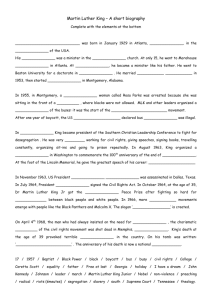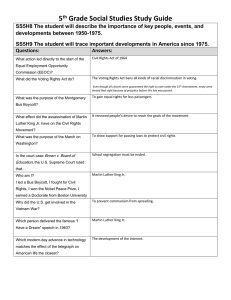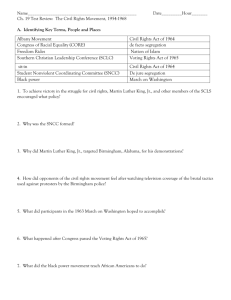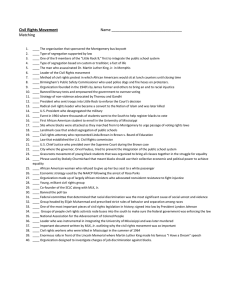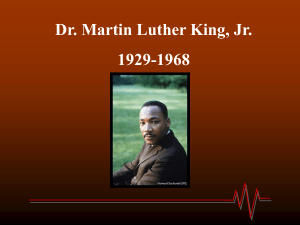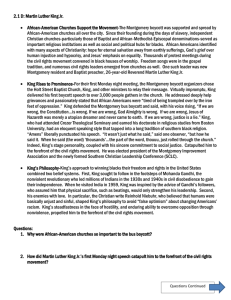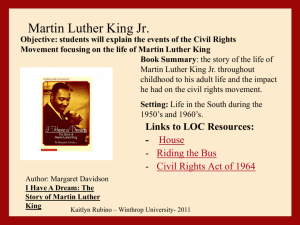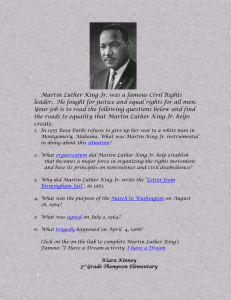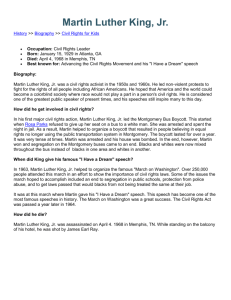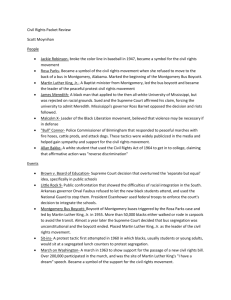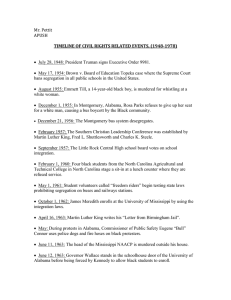Martin Luther King Jr. Timeline Activity
advertisement
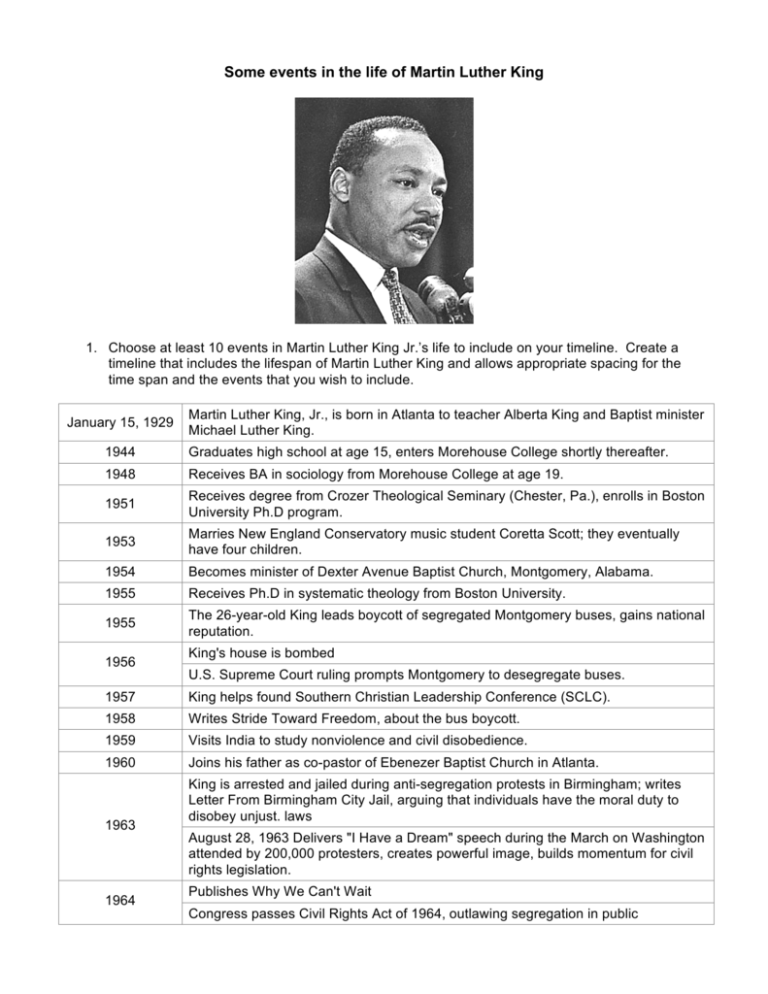
Some events in the life of Martin Luther King 1. Choose at least 10 events in Martin Luther King Jr.’s life to include on your timeline. Create a timeline that includes the lifespan of Martin Luther King and allows appropriate spacing for the time span and the events that you wish to include. January 15, 1929 Martin Luther King, Jr., is born in Atlanta to teacher Alberta King and Baptist minister Michael Luther King. 1944 Graduates high school at age 15, enters Morehouse College shortly thereafter. 1948 Receives BA in sociology from Morehouse College at age 19. 1951 Receives degree from Crozer Theological Seminary (Chester, Pa.), enrolls in Boston University Ph.D program. 1953 Marries New England Conservatory music student Coretta Scott; they eventually have four children. 1954 Becomes minister of Dexter Avenue Baptist Church, Montgomery, Alabama. 1955 Receives Ph.D in systematic theology from Boston University. 1955 The 26-year-old King leads boycott of segregated Montgomery buses, gains national reputation. 1956 King's house is bombed U.S. Supreme Court ruling prompts Montgomery to desegregate buses. 1957 King helps found Southern Christian Leadership Conference (SCLC). 1958 Writes Stride Toward Freedom, about the bus boycott. 1959 Visits India to study nonviolence and civil disobedience. 1960 Joins his father as co-pastor of Ebenezer Baptist Church in Atlanta. 1963 1964 King is arrested and jailed during anti-segregation protests in Birmingham; writes Letter From Birmingham City Jail, arguing that individuals have the moral duty to disobey unjust. laws August 28, 1963 Delivers "I Have a Dream" speech during the March on Washington attended by 200,000 protesters, creates powerful image, builds momentum for civil rights legislation. Publishes Why We Can't Wait Congress passes Civil Rights Act of 1964, outlawing segregation in public accommodations and discrimination in education and employment. October 14, 1964 1965 King receives Nobel Peace Prize. King and SCLC join voting-rights march from Selma to Montgomery; police beat and tear gas marchers; King addresses rally before state capitol, builds support for voting rights. Congress passes Voting Rights Act of 1965, which suspends (later bans) literacy tests and other restrictions to prevent blacks from voting. Mid-1960s 1966 1967 King's growing opposition to the Vietnam War angers President Johnson, prompts many white activists to switch to anti-war activities. Growing popularity of the black power movement, blacks stressing self-reliance and self-defense, indicates King's influence was declining, especially among young blacks. King turns toward economic issues; SCLC moves civil rights struggle to the North; opens Chicago office to organize protests against housing and employment discrimination. King plans Poor People's Campaign; advocates redistribution of wealth to eradicate black poverty. Publishes Where Do We Go from Here: Chaos or Community? April 4, 1968 King is assassinated in Memphis, during visit to support striking black garbage collectors; violent riots erupt in more than 100 U.S. cities. 2. Make and list at least 5 observations from your graphical timeline about the pace, gaps, or density of major events in this evolution. Be prepared to share your observations with your class. Source: http://www.infoplease.com/spot/mlktime1.html Brought to you by Yummymath.com
